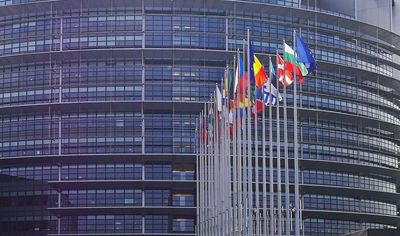Big tech companies, including Apple, Amazon, Google, and Facebook, could soon face new wide-reaching regulations in the European Union, under new legislation presented today by the European Commission (via CNBC).

Amid concern for smaller European companies looking to compete in the European market, the European Commission today presented two new pieces of legislation that aim to strictly regulate how big tech companies operate in the EU.
The Digital Markets Act, which has been planned for some time, includes the prohibition of self-preferencing. This means that App Store search results, for example, cannot preference apps made by Apple itself over third-party apps. Moreover, companies will be obliged to allow users to uninstall all pre-installed apps. Performance metrics will also have to be shared for free with advertisers and publishers.
Apple has already gone some way to meeting the rules set out in the Digital Markets Act. For example, as of iOS 10, Apple has allowed users to uninstall default apps. Likewise, last year, Apple adjusted its App Store search algorithm so that fewer of its own apps appear at the top of search results. Nevertheless, Apple will be equally obligated to meet the demands of the legislation, including sharing its internal metrics, if and when it comes into law.
Failure to comply with the rules may result in hefty fines, as high as ten percent of the company's worldwide annual turnover. It is hoped that the regulation will result in long-term, meaningful changes, rather than just repeatedly fining rule breaches.
Another measure to punish big tech companies is forced disinvestment. Systematic rule breaches could result in the demand that companies sell parts of their business "if no other remedy is available."
On the other hand, the Digital Services Act is designed to tackle illegal and harmful content by obliging platforms to rapidly remove it. Large fines also follow breaches in this area. The EU's competition chief, Margrethe Vestager, said that the two proposals would serve a dual purpose:
To make sure that we, as users, have access to a wide choice of safe products and services online. And that businesses operating in Europe can freely and fairly compete online just as they do offline.
Although the two pieces of legislation must be approved by European governments, there are reportedly indications that they could come into force faster than usual. Other governments around the world have also announced tougher regulations on big tech, such as the UK government, which has also announced a fine of ten percent of global turnover unless platforms fail to remove illegal content quickly.
Note: Due to the political or social nature of the discussion regarding this topic, the discussion thread is located in our Political News forum. All forum members and site visitors are welcome to read and follow the thread, but posting is limited to forum members with at least 100 posts.























